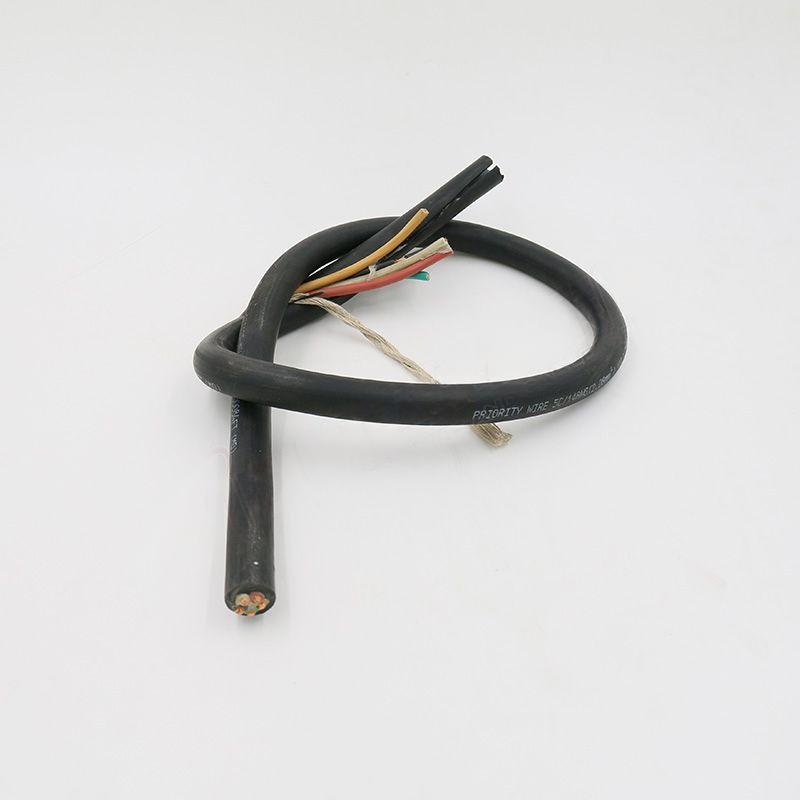Dec . 04, 2024 14:50 Back to list
Understanding Ground Cable Wire Specifications and Applications in Electrical Systems
Understanding Ground Cable Wires Importance, Types, and Applications
Grounding is a crucial aspect of electrical systems, ensuring safety, equipment protection, and signal integrity. Central to this process are ground cable wires, which play an essential role in providing a direct path for electrical faults to the ground. In this article, we will explore the importance of ground cable wires, the various types available, and their applications in different industries.
Importance of Ground Cable Wires
Ground cable wires serve several essential purposes. Firstly, they provide a safety mechanism by directing excess electrical current away from users and equipment during faults, such as short circuits or lightning strikes. This helps to prevent electrical shock, fires, and equipment damage, making grounding systems vital for personal and property safety.
Secondly, ground cables play a significant role in signal integrity for communication and data systems. By reducing electromagnetic interference (EMI) and noise, grounding helps improve the overall performance of sensitive electronic devices.
Additionally, grounding helps in stabilizing voltage levels in electrical systems. By providing a common reference point, ground cable wires can prevent voltage fluctuations, ensuring consistent performance across various electronic components.
Types of Ground Cable Wires
Ground cable wires come in various types, each suited for specific applications. The primary categories include
1. Bare Copper Wire This is the most commonly used grounding cable due to its excellent conductivity and affordability. Bare copper wire is typically used for grounding rod connections and large electrical equipment but lacks insulation which may lead to exposure and possible contact with conductive materials.
2. Tinned Copper Wire Tinned copper wire is coated with a thin layer of tin to enhance corrosion resistance, making it suitable for outdoor or marine applications. It is often used in environments where the cable may be exposed to moisture or other corrosive elements.
ground cable wire

3. Aluminum Wire While less conductive than copper, aluminum grounding wire has a lower weight and cost, making it popular for large-scale applications, such as utility poles and electrical distribution systems. However, it requires proper connections to minimize oxidation and ensure safety.
4. Stranded vs. Solid Wire Ground wires can also be categorized based on construction. Stranded wires are made up of several small wires twisted together, offering flexibility and ease of installation. In contrast, solid wires are made from a single strand of metal, providing better conductivity but are less flexible.
Applications of Ground Cable Wires
Ground cable wires find applications in various industries, including
1. Residential and Commercial Buildings In residential and commercial settings, ground wires are essential for protecting electrical systems and ensuring safety. They are typically connected to grounding rods or plates embedded in the ground, serving as a safeguard against electrical surges.
2. Telecommunications In the telecommunications industry, proper grounding of equipment is necessary to maintain signal integrity. Ground cable wires help to reduce noise and prevent transient overvoltages, ensuring uninterrupted communication services.
3. Renewable Energy Ground cables are crucial in solar and wind energy systems. They protect the equipment from lightning strikes and electrical faults, enhancing the reliability of renewable energy sources.
4. Industrial Applications In industrial environments, ground cable wires are used to safeguard machinery and equipment from voltage spikes, ensuring operational safety and reducing downtime.
Conclusion
Ground cable wires are a fundamental element of electrical systems, ensuring safety, protecting equipment, and maintaining signal integrity. Understanding the various types of ground wires and their applications can help in making informed decisions when designing or maintaining electrical systems. As technology evolves and electrical applications become more complex, the role of grounding systems will remain a critical component in ensuring safety and reliability across various industries. Ensuring proper installation and regular inspection of ground cables can drastically reduce risks associated with electrical faults, thus, safeguarding both people and property.
Share